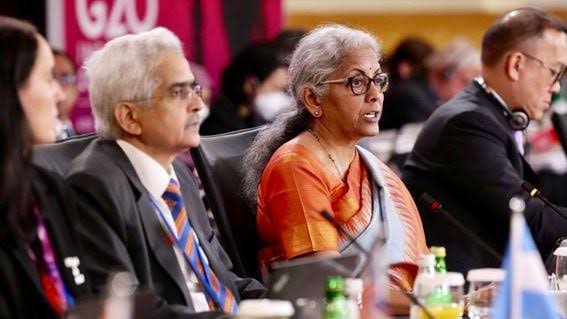India’s contentious tax deducted at source (TDS) policy, which has an impact on the cryptocurrency market, has not been changed.
As per normal, the country’s finance minister, Nirmala Sitharaman, presented the budget to the legislature on Thursday. The high taxes on cryptocurrency transactions—which include a 1% TDS on every transaction and a 30% tax on profits—were not expected to change. Nonetheless, there was a glimmer of hope due to initiatives from the homegrown cryptocurrency sector and a think tank report that strongly advocated for a TDS decrease.
Given that India will hold general elections in the following two months, there were generally reduced expectations for the financial industry going into this budget. Sitharaman made no announcements regarding direct or indirect tax reforms.
The finance ministry often presents an interim budget to cover its expenses for a brief period of time during election years instead of a full one. Following the results, a complete budget is typically anticipated in July. Polls indicate that Prime Minister Narendra Modi and his Bharatiya Janta Party are likely to retake power.
Since it was first announced two years ago, the government of India has been pushed by the cryptocurrency industry to lower the 1% TDS to 0.01%. In reaction to the 1% TDS, Indian cryptocurrency exchanges have been operating in survival mode and attempting to expand.
Although there wasn’t much of a movement with this interim budget, according to Dilip Chenoy, chairman of the Bharat Web3 Association, the policy group supporting India’s Web3 sector, “we are eagerly anticipating changes to be announced post-elections.”
“High TDS and income tax rates continue to be hurdles which have caused both creators and consumers to move out of India,” Chenoy stated. “Web3’s future in India has been greatly impacted by this shift. We have brought up these issues with important parties and we will do so in the future. According to a report by the Esya Centre, since the levies were established in July 2022, up to five million cryptocurrency dealers have moved their transactions abroad, potentially costing the government $420 million in revenue.
Rajagopal Menon, vice president of cryptocurrency exchange WazirX, stated that “integrating provisions for long-term financing of domestic crypto projects will benefit from the PM’s aspiration for [innovation] given how India is at a pivotal phase in the crypto revolution.” “We anticipate that these developments will be taken into consideration by the government in addition to our current demands for a 0.01% TDS rate reduction and a trader loss offset.”.
Although, the government hasn’t lowered taxes in the previous two years, it did take action against offshore cryptocurrency exchanges last month, which caused cryptocurrency activity to return to Indian exchanges.


